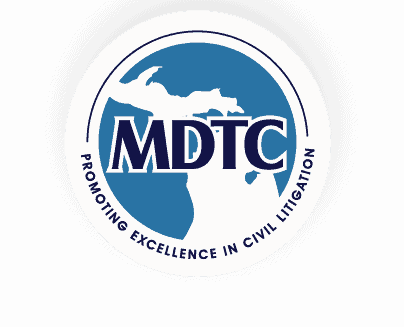The Michigan Defense Trial Counsel has filed an amicus brief in support of the defendant’s application for leave to appeal in Nexteer Automotive Corp v Mando America Corp. The issue in Nexteer is whether a party can waive a contractual right to arbitrate in the early stages of litigation before a plaintiff’s theories of the case are fully known.
The Court of Appeals held that Mando America Corporation waived its contractual right to arbitrate claims brought by Nexteer Automotive Corporation relating to alleged violations of a nondisclosure agreement when Mando agreed to entry of a preliminary case management order indicating that the agreement’s arbitration provision was “not applicable” – at least not at the time the order was entered. However, the case management order was entered during initial proceedings that were limited in scope and addressed only Nexteer’s request for a preliminary injunction. Moreover, although there was a box on the case management order indicating “waive[r]” of Mando’s right to arbitrate those claims, that box was not checked.
Phillip J. DeRosier drafted the amicus brief on behalf of the MDTC in support of Mando’s application for leave to appeal to the Supreme Court, arguing that in holding that Mando’s agreement to entry of the case management order nevertheless resulted in an “express waiver” of its right to arbitrate Nexteer’s claims against it, the Court of Appeals overlooked both the order’s ambiguous nature and the limited context in which the order was entered. MDTC’s amicus brief points out that under the Court of Appeals’ opinion, any contractual right – not just to arbitration – is subject to waiver merely by dint of a party’s agreement to the entry of an initial case management order – and a vague one at that.
On November 2, 2016, the Michigan Supreme Court granted mini oral argument on Mando’s application for leave to appeal, and directed the parties to address:
(1) whether a party asserting an express waiver of a right to arbitrate must demonstrate that it was prejudiced by the actions of the party asserting that right; and if not, (2) whether the case management order in this case constituted an express waiver of the right of the defendant, Mando America Corporation, to arbitrate.
About the author: Phillip J. DeRosier is a member in the Detroit office of Dickinson Wright PLLC, and specializes in the area of appellate litigation. Prior to joining Dickinson Wright, he served as a law clerk for Michigan Supreme Court Justice Robert P. Young, Jr. He is a past chair of the State Bar of Michigan’s Appellate Practice Section. He can be reached at pderosier@dickinsonwright.com or (313) 223-3866.
